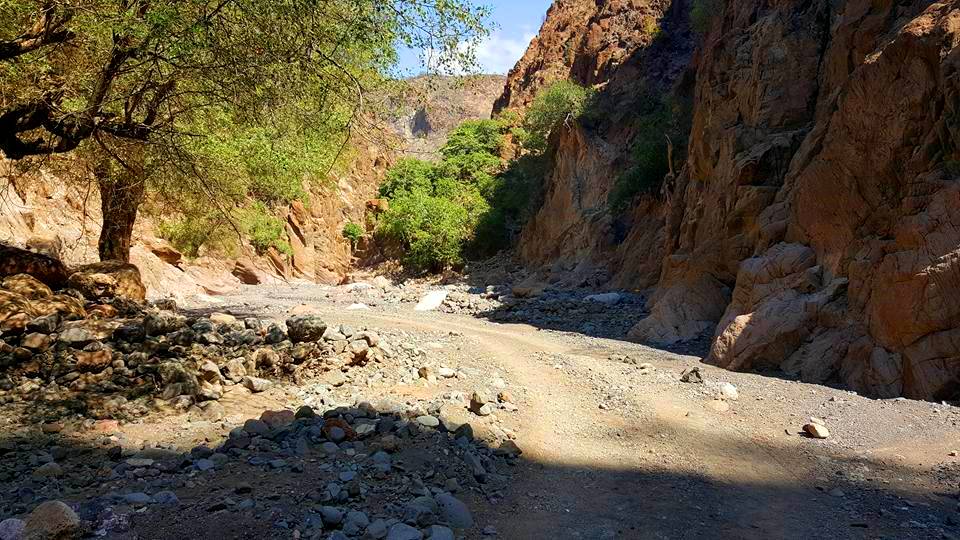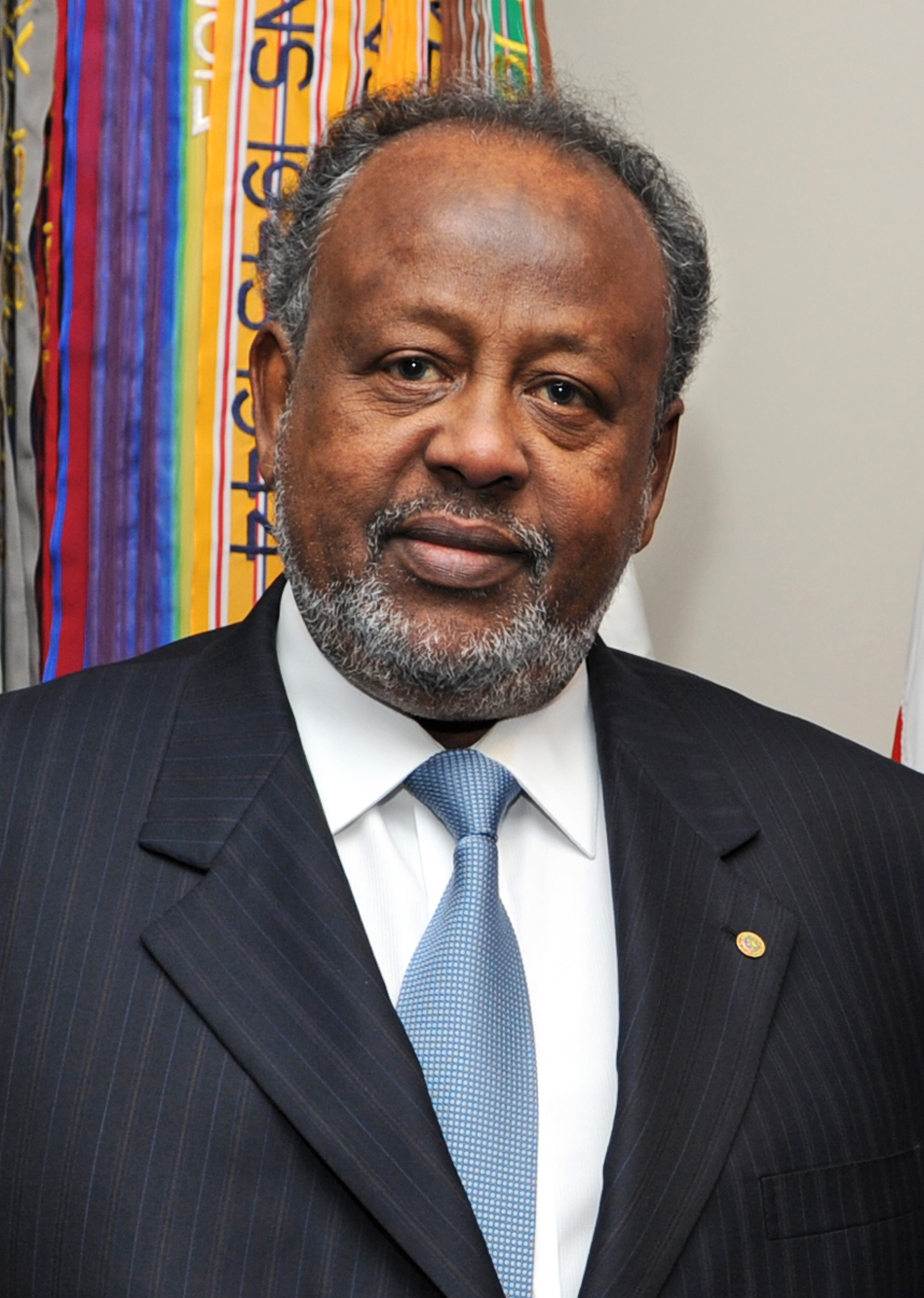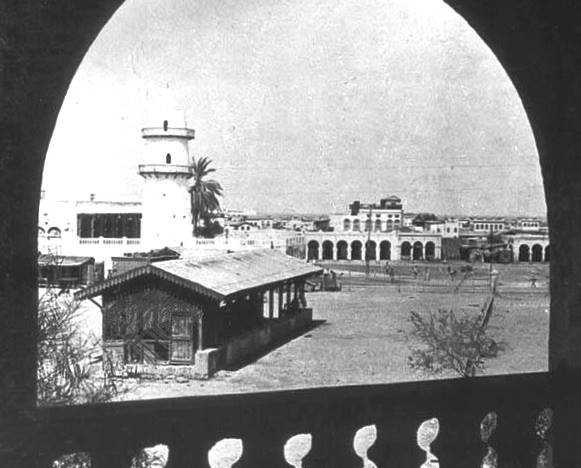|
Mohamed Dini Farah
Mohamed Dini Farah ( so, Maxamed Diini Faarax) (born 1943.) is a Djiboutian politician. He is a former minister and President of the Parliamentary Group of the People's Rally for Progress (RPP), currently serving as a deputy in the National Assembly of Djibouti. Farah was born in Tadjourah. He was Minister of the Civil Service and Administrative Reform from 8 June 1995 to 19 April 1997, then Minister of Public Works."Djibouti: new government formed", AFP (nl.newsbank.com), 28 December 1997. Farah was elected to the National Assembly in the December 1997 parliamentary election as the second candidate on the joint candidate list of the RPP and the Front for the Restoration of Unity and Democracy (FRUD) in Tadjourah Region. Following this election, he was appointed as Minister of Justice, in charge of Human Rights, on 28 December 1997. Farah was subsequently appointed as Minister of Health on 12 May 1999. He was re-elected in the January 2003 parliamentary election as the second ca ... [...More Info...] [...Related Items...] OR: [Wikipedia] [Google] [Baidu] |
Djibouti
Djibouti, ar, جيبوتي ', french: link=no, Djibouti, so, Jabuuti officially the Republic of Djibouti, is a country in the Horn of Africa, bordered by Somalia to the south, Ethiopia to the southwest, Eritrea in the north, and the Red Sea and the Gulf of Aden to the east. The country has an area of . In antiquity, the territory, together with Ethiopia, Eritrea and Somaliland, was part of the Land of Punt. Nearby Zeila, now in Somaliland, was the seat of the medieval Adal and Ifat Sultanates. In the late 19th century, the colony of French Somaliland was established following treaties signed by the ruling Dir Somali sultans with the French, and its railroad to Dire Dawa (and later Addis Ababa) allowed it to quickly supersede Zeila as the port for southern Ethiopia and the Ogaden. It was renamed the French Territory of the Afars and the Issas in 1967. A decade later, the Djiboutian people voted for independence. This officially marked the establishment of the ''Rep ... [...More Info...] [...Related Items...] OR: [Wikipedia] [Google] [Baidu] |
People's Rally For Progress
The People's Rally for Progress ( ar, التجمع الشعبي من أجل التقدم; french: Rassemblement populaire pour le Progrès, RPP) is a political party in Djibouti. It has dominated politics in the country since 1979, initially under the rule of President Hassan Gouled Aptidon. Today it is led by President Ismaïl Omar Guelleh and is in a coalition government with Front for the Restoration of Unity and Democracy (FRUD) and other parties. The RPP tends to hold more influence among the Issa (clan), Issa population. The RPP was founded in Dikhil on March 4, 1979."Récit d’une journée commémorant les 25 ans d’existence du RPP" ''La Nation'' (Djibouti), March 8, 2004 . It was declared the sole legal party in October 1981, retaining this status until multipart ... [...More Info...] [...Related Items...] OR: [Wikipedia] [Google] [Baidu] |
National Assembly Of Djibouti
The National Assembly, formerly known as the Chamber of Deputies, is the unicameral legislative branch of the government of Djibouti. Overview It consists of 65 members – 30 Somali (21 Issa) and 30 Afar – elected to serve five-year terms in multi-seat (4 to 37 each) constituencies. The first free multi-party parliamentary election since independence (1977) was held in 2003, with the ruling coalition, led by the People's Rally for Progress (RPP), receiving 62.7% of the vote. Idriss Arnaoud Ali was President of the National Assembly from 2003 until his death in 2015. He was succeeded by Mohamed Ali Houmed. For its entire existence, the National Assembly has been dominated by the Popular Rally for Progress, which is presently the senior partner in the Union for a Presidential Majority coalition. From 1981 to 1992, the RPP was the sole legal party. Even after opposition parties were legalized in 1992, the RPP won every seat in the legislature. From 1997 onward, it fought ele ... [...More Info...] [...Related Items...] OR: [Wikipedia] [Google] [Baidu] |
Djiboutian Parliamentary Election, 1997
Parliamentary elections were held in Djibouti on 19 December 1997. The Front for the Restoration of Unity and Democracy, which had boycotted the last election, ran joint candidates with the ruling People's Rally for Progress. Together, they won all 65 seats in the National Assembly, with the PRP taking 54 and the FRUD 11. Voter turnout was 56.7%. Inter-Parliamentary Union Results References {{Djiboutian elections[...More Info...] [...Related Items...] OR: [Wikipedia] [Google] [Baidu] |
Front For The Restoration Of Unity And Democracy
The Front for the Restoration of Unity and Democracy (french: Front pour la Restauration de l'Unité et de la Démocratie, ar, الجبهة من أجل استعادة الوحدة والديمقراطية) is a political party in Djibouti. It is aligned with the interests of the Afar people who live in that country, although it has supporters residing outside of Djibouti. Formation and rebellion Rebellion against the government Three Afar groups—Action for the Revision of Order in Djibouti, the Front for the Restoration of Right and Equality, and the Djibouti Patriotic Resistance Front—merged in 1991 to form FRUD. In late 1991, FRUD launched a rebellion against the Issa-dominated government. Nearly 1,000 people died during the conflict until 1994. New insurgency (1994-2014) After the rebellion, the FRUD-C (Front pour la restauration de l’unité et de la démocratie – Combattant, or Front for the Restoration of Unity and Democracy – Combatant; alternatively called ... [...More Info...] [...Related Items...] OR: [Wikipedia] [Google] [Baidu] |
Tadjourah Region
The Tadjourah Region so, Gobolka Tajoora, aa, Rakaakay Tagórri) is a region in north-central Djibouti, the largest of its six regions. With its capital at Tadjourah, it has an area of 7,100 square kilometres (2,700 sq mi). It lies along the Gulf of Tadjoura, and the coastal city of Tadjoura. The region has active salt and fisheries industries, and is served by the Tadjoura Airport. In total area, it is larger than Brunei and smaller than Cyprus. History The boundaries of the present-day Djibouti nation state were established during the Scramble for Africa. The first French establishment in the Horn of Africa, and in 1884 they sign a treaty with the Afar. The poet Arthur Rimbaud became a trader, and lived in Tadjoura from 1885 to 1886. He was the owner of a particular ship carrying weapons to be sold to the King of Shoa, cousin of the father of future Ethiopian Emperor Haile Selassie. In 1883 the French Somaliland (french: Côte française des Somalis) was officially fou ... [...More Info...] [...Related Items...] OR: [Wikipedia] [Google] [Baidu] |
Djiboutian Parliamentary Election, 2003
Parliamentary elections were held in Djibouti on 10 January 2003 to elect the National Assembly of Djibouti. The ruling coalition of President Ismail Omar Guelleh won all 65 seats in the election, defeating an opposition coalition. The elections were the first in which women were elected to parliament after a new law was passed requiring a minimum of 10% male or female candidates in candidate lists. Background After being a one-party state from 1977 to 1992, limited opposition was allowed in the previous two parliamentary elections. However, the 1997 elections still saw supporters of President Guelleh win every seat in Parliament. The situation was changed for the 2003 elections, with a law that had previously restricted the number of political parties to four expiring, and full multi-party democracy was allowed. Electoral system Members of the National Assembly were elected from five constituencies with different numbers of seats. In each constituency, the party or coalition w ... [...More Info...] [...Related Items...] OR: [Wikipedia] [Google] [Baidu] |
Djiboutian Parliamentary Election, 2008
Parliamentary elections were held in Djibouti on 8 February 2008."Début du vote avec retard pour les législatives" AFP (Jeuneafrique.com), 8 February 2008. There were 65 candidates running for the 65 seats in the , with all of the candidates coming from the ruling coalition, the Union for the Presidential Majority (UMP)."Djibouti votes amid opposition boycott" AFP (''IOL''), Februa ... [...More Info...] [...Related Items...] OR: [Wikipedia] [Google] [Baidu] |
Djibouti (city)
Djibouti (also called Djibouti City and in many early English texts and on many early maps, Jibuti; so, Magaalada Jabuuti, french: link=no, Ville de Djibouti, ar, مدينة جيبوتي, aa, Gabuutî Magaala) is the eponymous capital of Djibouti, and has more people than the rest of Djibouti combined. It is located in the coastal Djibouti Region on the Gulf of Tadjoura. Djibouti has a population of around 600,000 inhabitants, which counts for 54% of the country's population. The settlement was founded in 1888 by the French, on land leased from the ruling Somali and Afar Sultans. During the ensuing period, it served as the capital of French Somaliland and its successor the French Territory of the Afars and Issas. Known as the ''Pearl of the Gulf of Tadjoura'' due to its location, Djibouti is strategically positioned near the world's busiest shipping lanes and acts as a refueling and transshipment center. The Port of Djibouti is the principal maritime port for imports to and ... [...More Info...] [...Related Items...] OR: [Wikipedia] [Google] [Baidu] |
Members Of The National Assembly (Djibouti)
Member may refer to: * Military jury, referred to as "Members" in military jargon * Element (mathematics), an object that belongs to a mathematical set * In object-oriented programming, a member of a class ** Field (computer science), entries in a database ** Member variable, a variable that is associated with a specific object * Limb (anatomy), an appendage of the human or animal body ** Euphemism for penis * Structural component of a truss, connected by nodes * User (computing), a person making use of a computing service, especially on the Internet * Member (geology), a component of a geological formation * Member of parliament * The Members, a British punk rock band * Meronymy, a semantic relationship in linguistics * Church membership, belonging to a local Christian congregation, a Christian denomination and the universal Church * Member, a participant in a club or learned society A learned society (; also learned academy, scholarly society, or academic association) is a ... [...More Info...] [...Related Items...] OR: [Wikipedia] [Google] [Baidu] |
People From Tadjourah Region
A person ( : people) is a being that has certain capacities or attributes such as reason, morality, consciousness or self-consciousness, and being a part of a culturally established form of social relations such as kinship, ownership of property, or legal responsibility. The defining features of personhood and, consequently, what makes a person count as a person, differ widely among cultures and contexts. In addition to the question of personhood, of what makes a being count as a person to begin with, there are further questions about personal identity and self: both about what makes any particular person that particular person instead of another, and about what makes a person at one time the same person as they were or will be at another time despite any intervening changes. The plural form "people" is often used to refer to an entire nation or ethnic group (as in "a people"), and this was the original meaning of the word; it subsequently acquired its use as a plural form of per ... [...More Info...] [...Related Items...] OR: [Wikipedia] [Google] [Baidu] |



_1938.jpg)